By Skifter Këlliçi
(When the terrible Russian dictator was much more lenient and tolerant of his Albanian disciple)
Prologue
Memorie.al/One autumn day of 1986, I met a friend of mine who worked in the Directorate of Propaganda at the Central Committee of the ALP and at the same time, was a member of the commission for reviewing foreign films at the Kinostudio “Shqipëria e Re”. After the death of dictator Enver Hoxha, as it is known, “prisons were slightly liberated” in the field of literature and arts, so I told him that: in the archive of this institution, there should be the Soviet film “Happy Youth”, shown in cinemas since 1945. Since it was produced in the Stalin era, this film, although damaged, could be edited and reappeared on the screens of cinemas and televisions, especially since, as I had read in the Soviet press, he himself had liked it. Stalin.
My friend shook his head in denial: “Skanderbeg does not appear, which is also a Soviet-Albanian production, approved in 1953, when Stalin was still alive” – he told me – “then there is no question of that movie”! I did not prolong it and even regretted this proposal, which I made to my friend of university years.
After so many years I remembered that I had written some notes about this film, which I reworked, enriched and with other events that I found on the internet, I am offering readers the following work.
“Happy Boys” is criticized for ‘Hollywood influences’, but Stalin orders his show!
From 1929 to 1932, by order of Stalin himself, a group of filmmakers, consisting of Eisenstein, a well-known director in the West, was sent to the West and the United States for the great silent film “The Patrymkin Crown (1925), the young director, Alexandrov and cinematographer Tise. That same year, Western cinematography had taken a big step; films were now being shown with sound, music and vital noise.
In addition, cinematographic technique was modernized in other directions, which had to be recognized and mastered by Soviet filmmakers. Stalin sent these filmmakers to the West, at a time when in the Soviet Union, the decision of the Politburo of the Central Committee of the Communist Party of the Soviet Union “On the reconstruction of literary and artistic institutions” was issued, according to which they were put under stricter control. , to avoid even the slightest fluctuation, from the party instructions and the principles of Soviet realism.
Just like after the infamous IV Plenum of the Central Committee of the ALP, in June 1973, when Enver Hoxha criticized foreign performances in our art and literature, as a result of bourgeois-revisionist influences, which were seen especially in The 11th National Song Festival on ART, in 1973. But unlike Stalin, after this plenum Enver Hoxha did not allow any specialist in the field of art to attend specialization courses in Western and revisionist countries, offered by UNESCO and other bodies or to exchange delegations, or artistic groups with these countries.
Eisenstein, Alexandrov and Tisza spent most of these three years in Hollywood studios, exchanging experience and learning from American filmmakers, especially Charlie Chaplin, who was much liked by Stalin, but also by Enver Hoxha, who also liked Norman Pitkinin.
And behold, the day came for the three of them to return to the Soviet Union, necessarily with new knowledge gained from American cinematography. Exactly that year, in 1932, at a special meeting, Stalin ordered Alexandrov to think about creating a musical comedy, which until then was lacking in Soviet cinema!
“Our lives are getting better,” he told him. “So let it be even happier.” (Of course he lied to himself, because in the early 1930s, in addition to further intensifying the class war, with mass imprisonment and internment, due to the red terror and the dire economic situation, as a consequence of the great drought, in Soviet Union, starved to death by millions). And so the idea came to Alexandrov, to create the film that would be titled “Happy Boys” (in Russian “Vjesjollëie rebjata”).
Together with screenwriters Erdman and Mas, he wrote the screenplay for the film and began filming in the southern Russian city of Gagr. He entrusted the music of the film to Dunajevsky, one of the most famous Soviet composers.
The subject of the film was simple: The musician shepherd, Kosta Patjohin, played by the famous actor and singer, Leonid Utyosov, goes to Moscow to see at the theater “Balshoi”, a musical show and wearing a tuxedo, accidentally taken for conductor foreigners, who would lead the jazz orchestra, but who was late coming. And he performs this role very skillfully. Meanwhile, Anjuta, played by actress Lyubov Orlova, who also became Alexandrov’s wife, also in some random circumstances, is on stage and, together with Costa, excels in this show.
Let us not forget that before marrying Alexandrov, Orlova had been married to Berzin, a senior Soviet official who had opposed Stalin on a number of economic issues, and as a result, had been sentenced as an enemy of Soviet power to several years in prison. However, the dictator gave his consent for Orlova to star in this film. (Enver Hoxha, with very rare exceptions, has not allowed and would never allow an artist or artists, in such circumstances, to appear on the theater stage, or to play in movies).
But during the filming of the movie, something terrible happened. OGPU (then Soviet State Security) agents arrested screenwriters Erdman and Mas, who, after a trial, were sentenced to deportation from Moscow and then interned, because in some of their creations, (parodies of couples), had created texts with subtle and dangerous implications.
After this tragedy, it was expected that the shooting of the film would be stopped..! But that did not happen at all. From above, (understood by Stalin himself), the order came for the film to end, but already having as author of the script, only Alexandrov. As usual, the film had to be seen by members of the Committee of People’s Commissars for Culture, which later, as well as committees in other fields, returned to the Ministry of Culture. And here began the zallamahia.
Without finishing the final scenes of the film, in the screening hall, many of the members of the commission attacked the film with criticism and accusations of mishmash events, ostensibly hilarious, that had nothing to do at all with the clean life of Soviet citizens and above all, described it as plagiarism of degenerate American films, from which the director Alexandrov was influenced.
The situation became very tense and for the above reasons, it was decided that the film “Happy Boys” should be thrown in the trash and Alexandrov should be severely punished for these inadmissible ideological mistakes.
Fortunately, the great writer Maxim Gorky, who was also a friend of Stalin, also took part in the screening of the film. He was the one who immediately informed the Russian dictator about what was happening. Then Stalin asked to see the film together with the members of the Politburo, which included: Molotov, Bulganini, Voroshilov, Malenkov, Kaganovich, etc. And as was not uncommon, without waiting to hear the opinions of his subordinates, the dictator stood up and said, ‘the film was beautiful and would be liked by the people’.
And so it was. The film “Happy Boys” was a huge success, not only in the Soviet Union, but also in Western countries, and even in the United States, where it was shown under the title “Moscow Laughs”. He also liked Chaplin, who said that: through the film, Americans were introduced to the high level of Soviet musical comedy. Not only that, but in 1935, the film won major awards at the Venice International Film Festival, including Alexandrov for directing and Dunajewski for music. Orlova became a star of Soviet cinema, compared to Marlen Dietrich, a famous German actress and singer.
The filmmakers were hosted by Stalin himself. But Ljubov Orlova, the dictator received him in a special meeting, where only the two of them happened. It should be noted that two years ago, in 1932, the Russian dictator was left a widow, because his second wife, Nadjezhda Alilluyeva, after a nervous breakdown, had killed herself. Not only did he suffer from constant headaches, but also because of the brutal behavior of Stalin, who was a dictator in the family as well. (The first wife, Ekaterina Svanidze, with whom he had given birth to Jakov, (committed suicide in a Nazi concentration camp after being taken prisoner), died in 1907.
He married Nadjezhda in 1918, when she was only 18 years old and he was 23 years older, he had two children, Vasili, a military man but incompetent and lazy, who after his father’s death turned into a drunkard and he had even ended up in prison. Svetlana, who died in 2011, is known for the journalistic books she has written, including against her tyrannical father and her mother, Nadjezhda. Thus at the age of 54, Stalin had become a widow. He was a statesman, but he was also a strong man in bed.
Much has been written about the Soviet dictator’s love for artists, especially the singer Davidova, but I will dwell on the interview of the well-known Russian lawyer and businessman Alexander Dobrovonski, who years ago bought the villa of Alexandrov and Orlova, together with him even everything he had in it, including the diaries of the great artist. (Interview, published in the Russian magazine “Arguments and facts”, no. 18, 30.4.2014).
Based on these diaries, Dobrovonski also tells about Orlova’s meeting with Stalin, whom she hated terribly. During the meeting she realized that although married to Alessandrov, Stalin wanted her, so to restrain his every step, from the beginning of the conversation, he asked her: “Comrade Stalin, can I know from you about the fate of my husband? First?”. It was about Berzin, who was still lying and exhausted in prison.
This question, according to Dobrovonsky (based on Orlova’s diary), surprised the dictator, who faded, did not answer and immediately the conversation took direction, only about the movie “Happy Boys”. (On this occasion, I emphasizes that Enver Hoxha, not only would not wait and congratulate any actress, whose husband had convicted her of anti-party attitudes and became as popular as Ljubov Orlova became).
However, according to Dobrovonsky, Stalin ordered that a villa be built for Alexandrov and Orlova on the outskirts of Moscow, which he gave as a state gift, because with the money and royalties of their films, they could only make a relatively good living and nothing more. In addition, Orlova was later awarded the “Stalin” prize for special merits in cinematography.
After Stalin’s death, at the beginning of the above film, in addition to Alexandrov’s name, they were also named after two other screenwriters, Erdman and Mas, as I mentioned above, condemned by the Stalinist dictatorship. However, after several years of exile, they were allowed by Stalin to return to Moscow and create literary works and screenplays.
(It has never happened that Enver Hoxha allowed a politically severely convicted writer to return to the literary world. Even in this case, contrary to our dictator, Stalin, he was kind to people of art).
Enver Hoxha and the 11th Song Festival on ART in 1973, from the critical point of view of Ramiz Alia!
In his book “My Life”, (2010), Ramia Alia, among others, analyzes the 11th ART Festival (December, 1972) and completely opposes Enver Hoxha, for his extremely harsh attitudes towards this festival and the consequences brought by the cruel measures he then took personally against many employees of Albanian art and culture, with dismissals from work and transfers to remote villages, internments, imprisonments…!
“The next day of the festival” – writes Ramiz Alia in this book, – “I also talked to Hysni Kapo and Mehmet Shehu and no one had any special remarks. And so on. (Page 260).
Moreover, Mehmet Shehu did not remark that, as Ramiz Alia points out in his book, during his conversations with Enver Hoxha: . (Page 263).
Later, in the 4th Plenum of the Central Committee of the ALP, held in June 1973, our dictator described Todi Lubonja as a “cheese deviator who has supported strong liberal and opportunistic views, modernist aesthetic taste, which tried to give Radio-Television a purely informative and cultural-cognitive direction, a direction which was contrary to the orientations of the Party and the Central Committee of the Party on its political, ideological, cultural and educational character”. (Enver Hoxha, “On literature and arts”. (Page 409, 1977).
Further in his work “My Life”, surprised by the attitude of Enver Hoxha towards the 11th Festival, Ramiz Alia writes:
“Before Enver spoke at the Presidium of the People’s Assembly, we had not managed to talk together about the Festival. So his criticism of him was a surprise to me. “I was not even happy that Enver made public criticism, without talking to me at all, that I was responsible for this sector of activity”. (pages 263-264).
So, Ramiz Alia, very rightly felt insulted.
“This is the formal side of the issue,” Ramiz Alia continues in his book. – ‘The basic thing is that I was not clear why Enver Hoxha held that position, so critical of the XI Festival! In all the contacts and conversations I had with him, about problems of arts and culture, Enver was never shown to be rigid. Therefore, it was difficult for me at that time to understand Enver’s strict stance”(p. 263).
Epilogue
Stalin was a dictator, whom Enver Hoxha adored and followed step by step his bloody act. But Enver Hoxha, passed with his criminal acts, which started after the 11th National Song Festival on ART, in the 4th Plenum of the Central Committee of the ALP for literature and art.
Even the Russian dictator with the film “Happy Boys”, as we saw, could have launched such a crusade against the authors of this film, described by his fanatical subordinates, “as stigmatized by ugly Hollywood influences”, and then to continue it to other creators everywhere in the Soviet Union.
In 1931, he could have condemned the great writer Sholokhov for the first two volumes of the novel “Quiet Love”, which were severely criticized in plenums by leaders of the Writers’ Union of the Soviet Union, being accused of the idealization of Cossack life, the “absence of class warfare” and the “faint description of red characters as opposed to white characters”, and thus the publication of the third volume was called into question. But it was again Stalin who, without hesitation, ordered this volume to be published.
By order from above, including Enver Hoxha, in 1966, our literary criticism, influenced by the teachings of the Great Cultural-Proletarian Revolution, described it as “Quiet Don”, (which a year ago, had won the award “Nobel”), as a revisionist work and Melehov, its main character, wavering, not positive. Consequently, this work was banned because it went against the principles of socialist realism.
Enver Hoxha surpassed even in this case his paternal teacher, Stalin…! Memorie.al





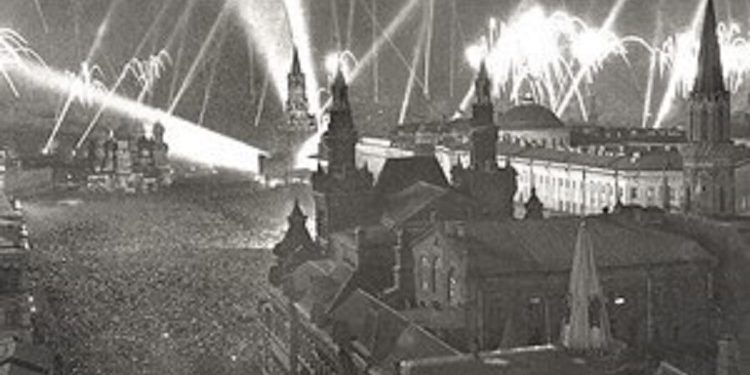
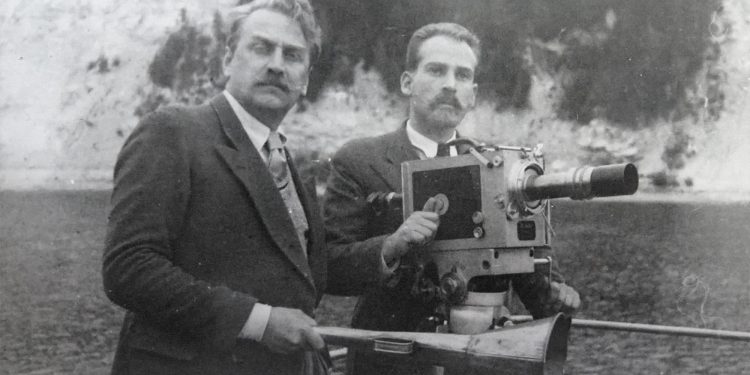
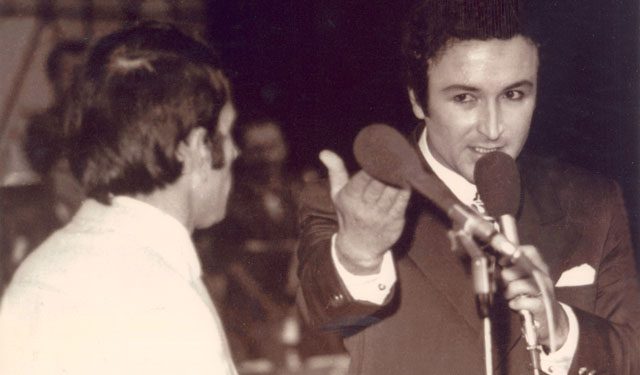
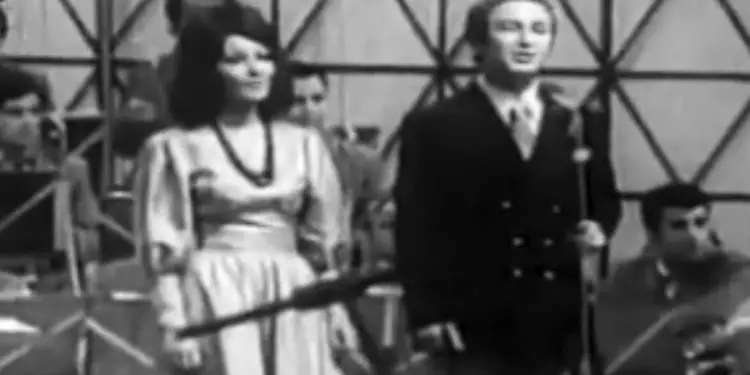
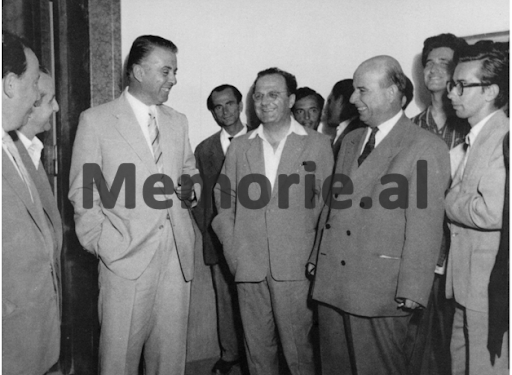
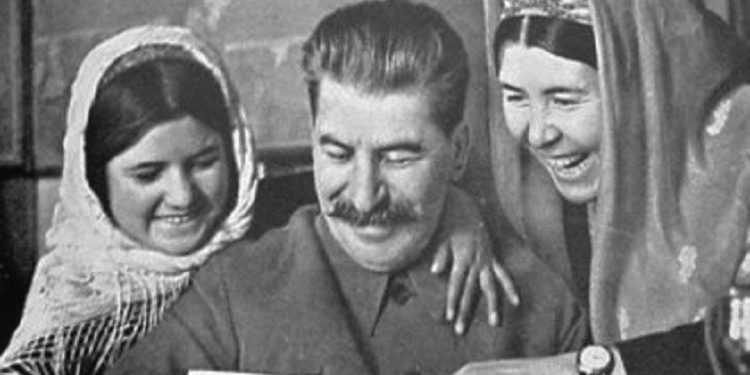

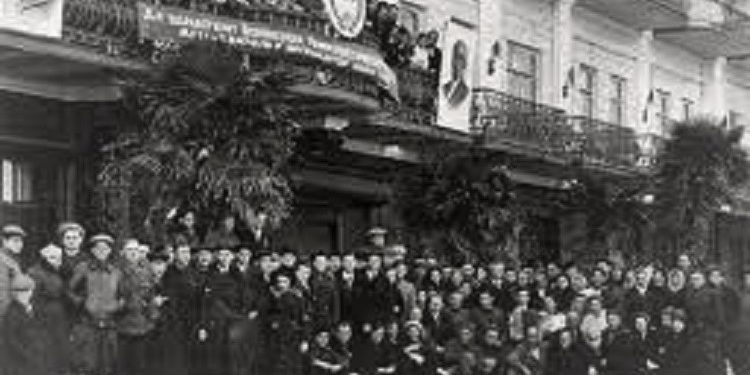
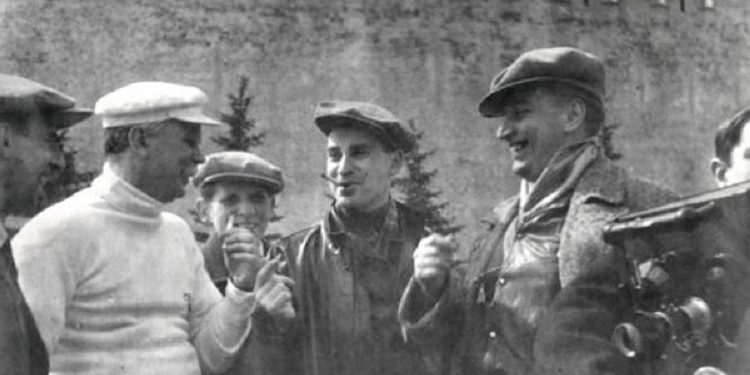
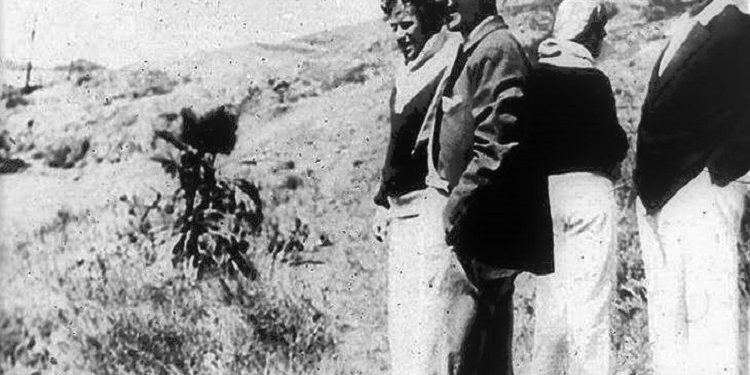
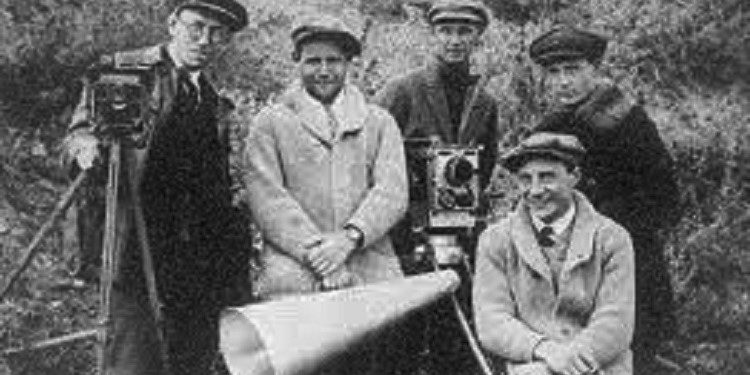
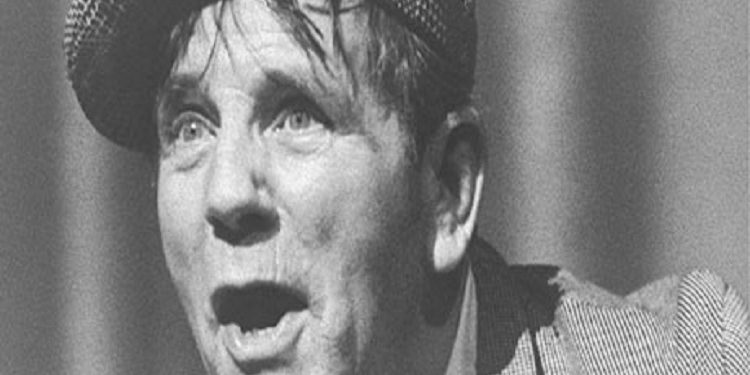
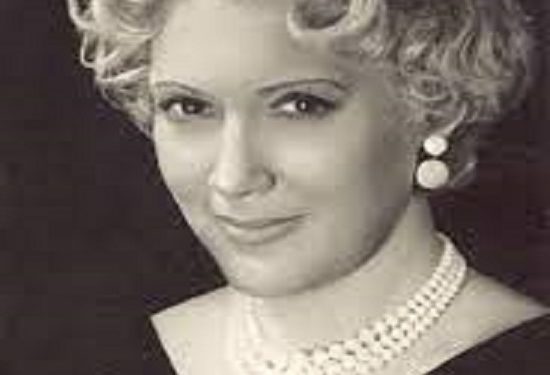
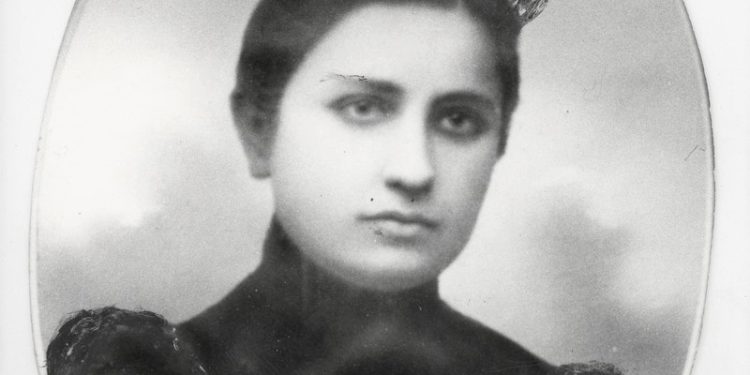
![“In an attempt to rescue one another, 10 workers were poisoned, but besides the brigadier, [another] 6 also died…”/ The secret document of June 11, 1979, is revealed, regarding the deaths of 6 employees at the Metallurgy Plant.](https://memorie.al/wp-content/uploads/2026/02/maxresdefault-350x250.jpg)





